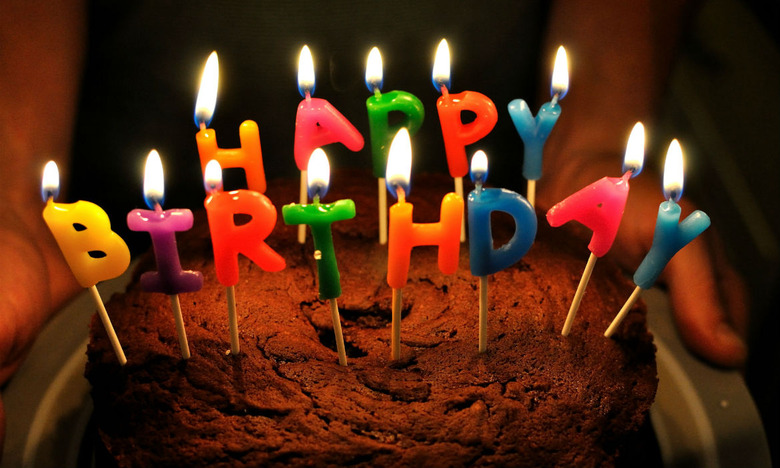Why Do We Celebrate Birthdays With Cakes And Parties Anyway?
Every year we celebrate our birthdays with cake, candles, balloons, and a party. Whether you're throwing a party for your kids, filled with presents, crazy birthday cakes, and colorful decorations, or you're wondering where that last year went as you drink one more glass of Champagne and toast to another year of survival, birthday parties are annual and inescapable. But where did all these traditions start?
The first record of a birthday celebration is from the times of the Egyptians. In Ancient Egypt, when someone was crowned as a pharaoh, they were then considered to be a god. This coronation date was consequently incredibly important, and deemed more important than their actual birthday. In the Bible, there is a reference to the Pharaoh's coronation day. This is believed to be the first note of a birthday, which was, of course, celebrated, to mark the amazing transition from human into deity.
Cake and candles weren't part of the Egyptian 'birthday' celebrations. For this, we have the Greeks — who, like the Egyptians, celebrated the birthdays of gods and goddesses, rather than of us mere mortals — to thank. The Greeks would honor their lunar goddess, Artemis, by making moon-shaped cakes and placing candles on top of them. The candles were there to represent the beautiful light of the moon, and were the start of a long-standing tradition.
The first people to start celebrating the birthday of the humble human being were the Ancient Romans. Women's birthdays were not celebrated (the first record of a birthday celebration for a woman is in the twelfth century), but the birthdays of male friends and family members were celebrated ever year. The government took birthdays so seriously that it even created public holidays to make the birthdays of the most famous and important citizens.
For centuries, Christians considered birthday celebrations to be an evil, pagan tradition, so they discouraged and ignored them. However, eventually they changed their mind, and started marking Jesus' birthday by celebrating Christmas every year. With the church's endorsement, birthday celebrations began to become more and more common.
Thankfully, the Germans eventually came up with a suitably sweet way to mark children's birthdays: birthday cake. In the eighteenth century, Germans celebrated kids' birthdays with 'Kinderfeste,' and birthday cake was an incredibly important part of this celebration. And not just any birthday cake: cake topped with candles. Every child was given a cake with one candle for every year they had lived, plus one extra to symbolize the hope of living another year. When blowing out the candles, every child had to make a wish, just as we still do today.
Sadly, birthday cakes haven't always been as sweet and delicious as they are now. Sugar and sweet ingredients used to be incredibly expensive and hard to come by, so sweet, decorated cakes were reserved for the incredibly wealthy. To our great relief, when the Industrial Revolution came along in the late eighteenth century, this all changed, and everyone was able to get his or her hands on sugar to bake personal birthday cakes, or to buy premade birthday cakes.
The final key component of birthday parties, the "Happy Birthday" song, wasn't created until 1924. A musician named Robert Coleman edited a song sang by schoolchildren every morning, and created the "Happy Birthday" song, which has been a key feature of all birthday parties, alongside the cake and candles, ever since.
